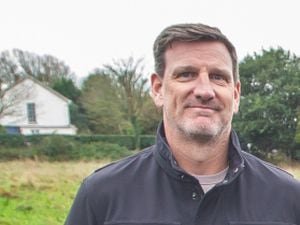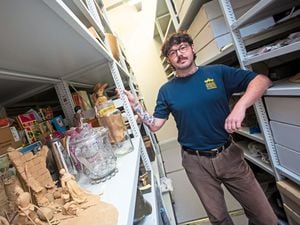Do we need to know more
Is asking the Assembly to vote through a fundamental transformation of the law on the basis of a four-page requete the right way to effect change? asks Peter Gillson

THE assisted dying requete expects deputies to agree changing legislation but provides no supporting evidence to justify the change.
To fill this vacuum I have been doing a little research, which, although interesting, has raised questions.
The first may seem one which should not need asking: what exactly is meant by ‘assisted dying’? At first glance it means another person helping somebody to die. But it’s not that simple; there seems to be two significantly different ‘levels’ of implementation.
The first is where the patient has to administer the drugs themselves, which is more accurately described as doctor-assisted suicide since the doctor’s involvement is sourcing the lethal drugs rather than administering them.
The second system allows a second person, usually a doctor, to administer the lethal drug – more accurately called voluntary euthanasia.
One place which allows doctor-assisted suicide is the US state of Oregon. It is available to adults over 18 who are capable of making decisions, have a terminal diagnosis with a life expectancy of six months and are Oregon residents.
Belgium, on the other hand, is more liberal – voluntary euthanasia is legal. There are no specific diagnostic requirements, the patient only needs to be experiencing unbearable suffering without prospect of a cure.
Surprisingly, it’s available not only for terminal conditions but also non-terminal ones, including dementia, alcohol and drug addiction, mental illness and disability.
Which is appropriate for Guernsey?
The requete refers to both jurisdictions but is silent about which level of assisted dying it seeks approval for – that detail is to be determined after deputies have approved its introduction.
Some may suggest this is not a problem because the signatories will explain it during the debate. They may do that, but such explanations carry no weight – what is important is the actual wording of the proposition.
Let me illustrate this by reference to the island-wide voting referendum. When Deputy Fallaize placed his referendum amendment, the Assembly had just approved a proposition to introduce single-constituency IWV for the 2020 election. His amendment was to make the introduction of IWV subject to a referendum.
In the context of the debate, the referendum would mirror the type of IWV which had been approved.
Indeed, the seconder of the amendment, Deputy Soulsby, expected a binary referendum.
What we have is a five-option referendum, allowable because the wording of the amendment does not exclude a multi-option referendum.
The precise wording is relevant rather than the context of the debate or what is said in debate. Any deputy supporting the requete cannot be sure which level of assisted dying would be implemented.
There have been a number of personal, heartfelt stories in the media and one would have to be a very cold person not to find them moving. I have the greatest sympathy for those situations.
Very rarely is there a perfect decision. There are pros and cons to most decisions and, as heartfelt or persuasive as those stories are, they do not constitute balanced evidence which weighs up the pros and cons.
The majority are putting forward their support of one side or the other and so will carry a bias. I am not trying to criticise the authors, or demean their arguments – a bias is natural.
Mention has been made that Oregon has no recorded instances of the system being abused.
On the face of it very positive, but the Oregon system seems to have little scope to identify abuse since the authorities only collect data on circumstances surrounding death when a doctor or health professional is present. According to their 2016 report, such health professionals attended only 20% of such deaths.
Their report also notes that 106 doctors provided assistance, ranging from one to 27 instances per doctor.
One doctor involved in 27 cases seems a lot. Perhaps that doctor works in a hospice environment, so a high number would be expected, or do different doctors apply the guidelines significantly differently?
Does it matter? Their report provides no further information.
There has been a worrying incident in Quebec which has an ‘Oregon system’. Recently one man, being disabled but not terminally ill, was not eligible for an assisted death – he starved himself for 53 days until he was beyond the point of return, at which point he became eligible for an assisted death.
An uncomfortable question: does that constitute an abuse of the process? There are now calls for the Quebec system to be relaxed.
One question I have been asked is, how would I vote?
Remember the proposals are not to investigate whether, but to agree to change the law and investigate how to implement the change.
I accept situations exist where assisted dying has merit, but my own research is limited and the requete provides no information.
Providing there would be no adverse effect on Health’s existing priorities, I would support a proposal to investigate and prepare fully informed proposals, but not to now approve a change in the law on the back of four pages of A4.
Finally, Deputy St Pier has said that, as a mature democracy, it’s appropriate to discuss this issue. Very true, but it’s also true that an indicator of a mature democracy is one which changes legislation after having been presented with the facts in a balanced, unbiased way, rather than before research is conducted.
Perhaps deputies should ask themselves: if the only information they have is a four-page requete and a number of personal stories and viewpoints, many of which will be biased, do they have enough information to support a significant change in the law? I know I wouldn’t.





